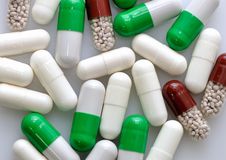The new synthetic drug decriminalisation law that makes a new distinction between the trafficking and consumption of these new substances comes into force today.
The diploma, which “clarifies the sanctioning regime relating to the detention of drugs for consumption regardless of the quantity and establishes regular deadlines for the updating of regulatory standards,” was promulgated by the President of the Republic, Marcelo Rebelo de Sousa, on the 31st of August, after the Constitutional Court had validated the diploma, and published in the Official Gazette on the 8th of September.
The new law updates the 1993 decree-law, which approves the legal regime applicable to the trafficking and consumption of narcotic drugs and psychotropic substances, to safeguard situations of inequality between New Psychoactive Substances (NPS) and synthetic drugs and to distinguish traffickers from consumers.
The statute states that if the acquisition and possession of drugs exceeds “the amount necessary for average individual consumption during the 10-day period, it is an indication that the purpose may not be consumption,” but trafficking, when before the maximum limit was five days.
Even if the acquisition or possession of the substances exceeds an amount greater than the 10-day use, the court may decide that the drugs “are intended exclusively for personal consumption,” in which case it may dismiss the case, decide not to pronounce the defendant or acquit him and refer him to a commission for the deterrence of drug addiction.
At the time of the discussion, the new law generated some controversy, including requests for “consideration” by the Minister of Internal Affairs, José Luís Carneiro, and “a lot of prudence” by the Minister of Health, Manuel Pizarro.
In the debate held in early July, PSD and PS justified the diplomas on the decriminalisation of synthetic drugs with the need to distinguish between traffickers and consumers, to guard against situations of inequality between new psychoactive substances and classic drugs.
According to the “European Drug Report 2022: Trends and developments,” almost seven tonnes of synthetic drugs, substances that are sold for their psychoactive properties but are not controlled under international drug conventions, were seized in 2020.
“There is also concern about the growing intersection between the markets for illicit drugs and new psychoactive substances. These developments mean that consumers may be exposed, without knowledge of cause to potent substances that may increase the risk of fatal or non-fatal ‘overdose’ episodes,” warned the report.
The same report indicated that at the end of 2021, the European Monitoring Centre for Drugs and Drug Addiction was monitoring around 880 new psychoactive substances, of which 52 were first reported in Europe in 2021. By 2020, around 370 previously notified NPS had been detected on the market.
In 2020, EU member states accounted for 21,230 of the 41,100 NPS seizures reported in the EU, while Turkey and Norway, accounted for a total of 5.1 of the 6.9 tonnes seized.
Samantha Gannon
info at madeira-weekly.com




